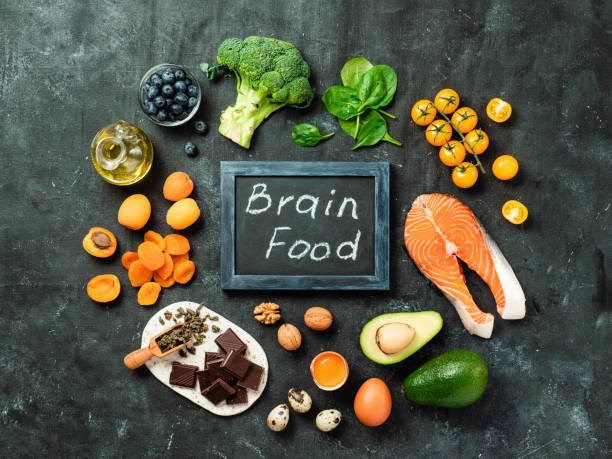
You know those days when you wake up on the wrong side of the bed, spill your coffee, and somehow end up crying over a slightly burnt toast? Yeah, same. But here’s the twist — it might not just be “one of those days.” It might be what’s on your plate.
I used to roll my eyes when people said, “You are what you eat.” Like, excuse me, I had fries last night, and I’m definitely not made of potatoes (though, emotionally… maybe). But turns out, there’s actual science behind how food affects your brain, your energy, and your entire vibe.
So here’s a casual walk through 8 ways your diet can shape your mood — served with a dash of psychology, a sprinkle of humor, and maybe a side of green tea.
1. Start Your Day With Food That Loves You Back
I used to skip breakfast all the time because “coffee counts as food,” right? Wrong. My hangry alter ego would show up by 11 AM, and honestly, she’s not fun.
Your brain needs glucose to function — but not the rollercoaster kind you get from sugary cereals. Think oats, eggs, fruits — the slow-release energy type that doesn’t crash you halfway through your meeting.
Try This:
Make a mood-friendly breakfast ritual. Play music, light a candle, and actually sit down with your food. Trust me, the calm lasts longer than caffeine alone.
2. Gut Feelings Are Real (Literally)
Ever had butterflies in your stomach when you’re nervous? That’s your gut-brain connection doing its thing. The two are besties, constantly texting each other (metaphorically, of course).
When I started adding probiotic foods — curd, pickles, kombucha (my hipster moment) — I noticed I was calmer and less bloated. Coincidence? Nope. Your gut bacteria help produce serotonin, the “happy” chemical.
Action Tip:
Add yogurt, kimchi, or even homemade achar to your meals. Think of it as feeding your internal emotional support system.
3. Don’t Ghost Carbs Entirely
Somewhere between diet culture and Instagram reels, carbs got villainized. But here’s the truth: your brain loves carbs. The right kind, that is — whole grains, fruits, lentils.
I tried cutting them once and became a moody monster. Like, I wanted to cry over a missing sock. That’s when I realized — low carbs = low serotonin.
So next time someone says “carbs are bad,” just smile and pass the rotis. Balance, not banishment.
4. Omega-3s: Your Brain’s BFFs
If my mood had a playlist, omega-3s would be the top track. These healthy fats (found in fish, walnuts, flaxseeds) literally help your brain function better.
When I started adding them to my diet — hello, crunchy walnut salads — I noticed fewer mood dips. Coincidence? Probably not. Research backs this up: omega-3s can reduce anxiety and depression symptoms.
Mini challenge:
Sprinkle flaxseeds on your smoothie or add a few walnuts to your snack box. Little swaps make a big difference.
5. Sugar Highs = Emotional Crashes
Here’s the thing: sugar makes you feel amazing — for about 20 minutes. Then comes the crash, the fatigue, and the sudden urge to yell at your WiFi for no reason.
I used to reward myself with dessert after a stressful day. The next morning? Instant regret and brain fog. Now, I save my sugar moments for when they feel special — like a cozy Sunday brownie or a celebration treat.
Try this mindset:
You don’t have to quit sugar. Just don’t let it drive the bus.
6. Stay Hydrated (Because Coffee Doesn’t Count)
Mood swings? Sometimes it’s just dehydration wearing a drama mask. Seriously.
I once spent an entire afternoon convinced I was emotionally drained, only to realize I hadn’t had a sip of water since breakfast. A glass later, I was like, “Oh. I’m fine.”
Simple Fix:
Keep a fun water bottle near you. Add mint or lemon slices if plain water bores you. Make hydration feel fancy.
7. Caffeine: Handle with Care
Look, I love coffee. I practically run on it. But I’ve also learned that too much caffeine turns me into a jittery, overthinking gremlin.
Caffeine messes with cortisol — your stress hormone — so if you’re already anxious, it can make things worse. I now stick to two cups max (and switch to herbal tea after lunch).
Pro Tip:
If you need a pick-me-up, try a banana + peanut butter combo instead of that 4 PM espresso shot. Works wonders and doesn’t fry your nerves.
8. Eat With Intention, Not Just Habit
Sometimes, it’s not what you eat but how. I used to eat lunch while scrolling Instagram (big mistake — I’d look up and realize I inhaled my food like a vacuum).
When you eat mindfully — chewing slowly, noticing textures, flavors — your brain actually registers satisfaction. You stop overeating, and your mood stays steady.
Practice This:
At least one meal a day, eat without screens. Be present. Think of it as a mini meditation with snacks.
Here’s the thing — food isn’t therapy, but it sure can be therapeutic. You don’t need a fancy diet or a green juice subscription. Just small, intentional changes that make your body feel good.
Your mood mirrors what’s going on inside — so feed it kindness, balance, and yes, the occasional chocolate chip cookie.
Because life’s too short to eat sad salads and call it “wellness.” 😉
What’s one food that instantly lifts your mood? Drop it in the comments — I’m always looking for new feel-good bites to try!
